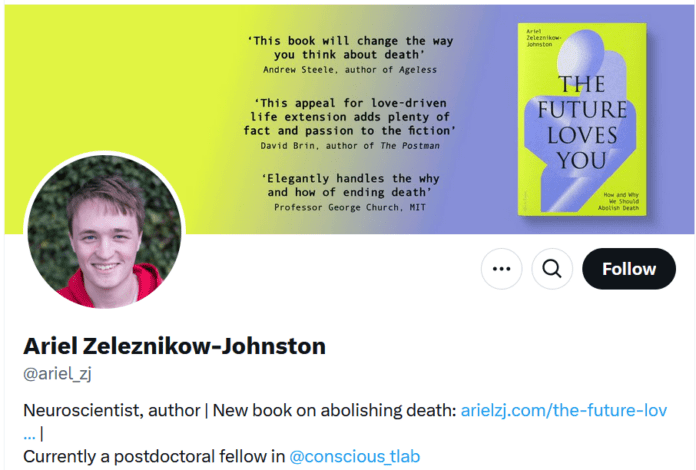What if death wasn’t the inevitable endpoint of life? Ariel Zeleznikow-Johnston, a 31-year-old Australian neuroscientist from Monash University, envisions a future where death is optional. His bold thesis, captured in The Future Loves You: How and Why We Should Abolish Death, proposes that advances in neuroscience and technology could one day grant humans a digital afterlife. But is this groundbreaking or just a sci-fi fantasy cloaked in academic credibility?
Death, Reimagined
Religions and philosophies have long grappled with death’s meaning, while medicine works tirelessly to postpone it. Yet Zeleznikow-Johnston (website) argues we’ve only scratched the surface. The core of his proposal lies in preserving the brain’s connectome—the intricate network of neural connections that defines our identity. If future technologies could recreate this digitally, a person might live anew, either in a machine or a synthetic body.
Unlike cryonics, which he dismisses as pseudoscience, Zeleznikow-Johnston champions a method using aldehydes to “fix” brain tissue, preserving its structure indefinitely. Cheaper than cryonics—estimated at $10,000 for preservation and $1,000 per year for storage—this process aims to bridge science and feasibility.
Revolutionary or Delusional?

The hurdles to digital immortality are staggering. Cryonics has already demonstrated the limits of preservation, with damage to tissue integrity making reanimation nearly impossible. Even with advanced preservation, understanding and recreating the human brain’s estimated 100 trillion synapses remains decades away, if not longer.
Critics like neuroscientist Maren Engelhardt caution that preserving a static brain is one thing; reviving its dynamic functionality is quite another. The brain is more than just a connectome; it is a constantly evolving symphony of electrical and chemical signals. Without this dynamic interplay, what emerges might be a shadow of the original self.
The Ethics of Eternity
The idea of digital resurrection raises profound ethical questions: Who decides who gets preserved? Why should future generations revive us? And would the resurrected “us” even be us?
Ariel Zeleznikow-Johnston remains optimistic. He believes the possibility of a personal stake in the future—living 200 or 300 years from now—could inspire humanity to create a better world. But as the lines between humanity and technology blur, we must ask: are we striving for eternal life, or are we losing the essence of what it means to live?
The debate is open. The future awaits. Will we conquer death, or will it remain humanity’s great equalizer?






